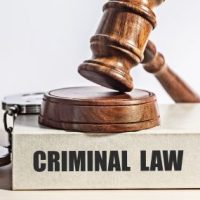Questions of Law and Questions of Fact in Florida Criminal Trials

As Florida is an equitable distribution state, where judges at divorce trials can decide on an individual basis the fairest way to divide a couple’s marital property and debts, many Floridians who have survived divorces so acrimonious that they went to trial balk at the judges’ interpretations of justice. In criminal cases, though, there is more at stake than people’s pride or their hard-earned money; in most felony cases, imprisonment is a possible sentence. Therefore, justice dictates that the decision of whether the defendant goes to prison should not be left entirely to one person. One manifestation of this is that 12 jurors must reach a unanimous verdict for the case to truly be over; if the jury cannot reach a unanimous agreement, the result is a mistrial, and the defendant remains in jeopardy with his or her fate uncertain. Another safeguard against injustice is that, before the jurors are sworn in, the court makes many rulings about what should and should not happen at the trial so that it is fair. Here, our Miami criminal defense lawyer explains the difference between questions of law, which judges decide, and questions of fact, which juries decide.
Questions of Law: Judges Decide What Is Legal and What Is Prudent
The Sixth Amendment to the Constitution details the right to a fair trial, elaborating that the trial is to be speedy and public, and that the verdict should be decided by unbiased jurors. Engineering a fair trial is more complicated than it sounds, and in the pretrial phase of the case, the prosecution and defense may disagree on many points, such that the judge must decide. Even earlier, the judge may decide whether it is fair and prudent for the defendant to be tried at all. All of these matters are called questions of law, since the judge is deciding how the laws apply to the present case.
The following are examples of questions of law:
- Is the defendant mentally competent to stand trial?
- Does the state have enough evidence to justify charging the defendant with a crime?
- Is this juror capable of being unbiased about this case?
- Is this piece of evidence admissible in court?
- Did the police have probable cause to arrest the defendant without a warrant?
- Does it serve the interest of justice to delay the trial until a certain other matter is resolved?
- Is the risk that the defendant will interfere with witnesses or evidence great enough to justify keeping the defendant detained until the trial?
Questions of Fact: Jurors Decide Which Version of Events Is Plausible
For each criminal charge that the defendant is facing, the jurors must answer only one question. Are we sure beyond a reasonable doubt that the defendant is guilty of this charge? It sounds simple, but sometimes it takes a long time for jurors to agree. Reasonable doubt is hard to quantify, despite the law’s efforts at enabling the jury to make an objective decision. The line between “probably” and “definitely” is just one factor that makes it hard for some juries to reach a unanimous decision. When intent is part of the definition of the crime, the jurors must guess what the defendant was thinking, which is very difficult to do with certainty.
Despite this, the jury’s role is clear cut; they answer questions of fact. They decide whether they believe the prosecution’s arguments or the defense’s arguments more, in light of the testimony they have heard. Based on this, they decide whether they are sure that Professor Plum truly removed the candlestick from the conservatory, and if he did, whether his actions fit the definition of burglary. Questions of fact do not overlap with questions of law.
Jury Nullification: When the Facts Add Up, but They Don’t Add Up to Justice
Jurors are supposed to base their decision only on the evidence and legal definitions they heard at trial, but the truth is that you and I will never know what was said in the jury room at a trial where we did not serve on the jury. Jury deliberations are confidential. Juries sometimes bae their verdicts on their sense of justice rather than on the facts. They might say to each other, “Yes, Professor Plum broke into the mansion and stole the candlestick, but the sentence for burglary is excessive, so not guilty,” even though all the judge hears is, “Not guilty.” When this happens, it is called jury nullification, and it is not supposed to happen, although it is virtually impossible to police. Lawyers and fellow jurors are not allowed to mention jury nullification before or during deliberations.
Contact Our Criminal Defense Attorneys
A South Florida criminal defense lawyer can help you exercise your right to a fair trial. Contact Ratzan & Faccidomo in Miami, Florida for a free, confidential consultation about your case.
Source:
law.cornell.edu/wex/question_of_fact


